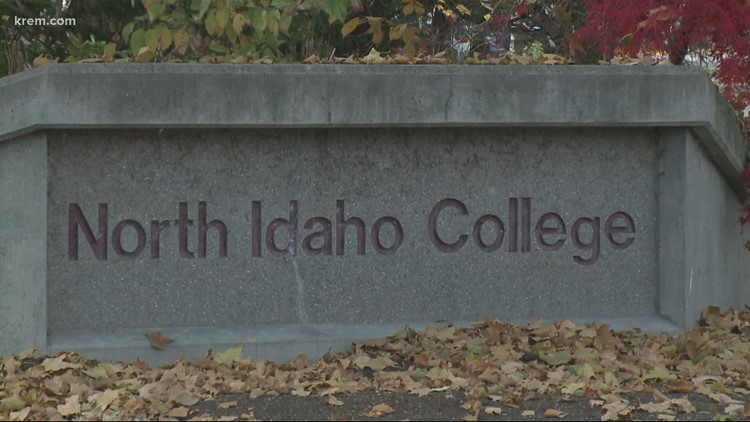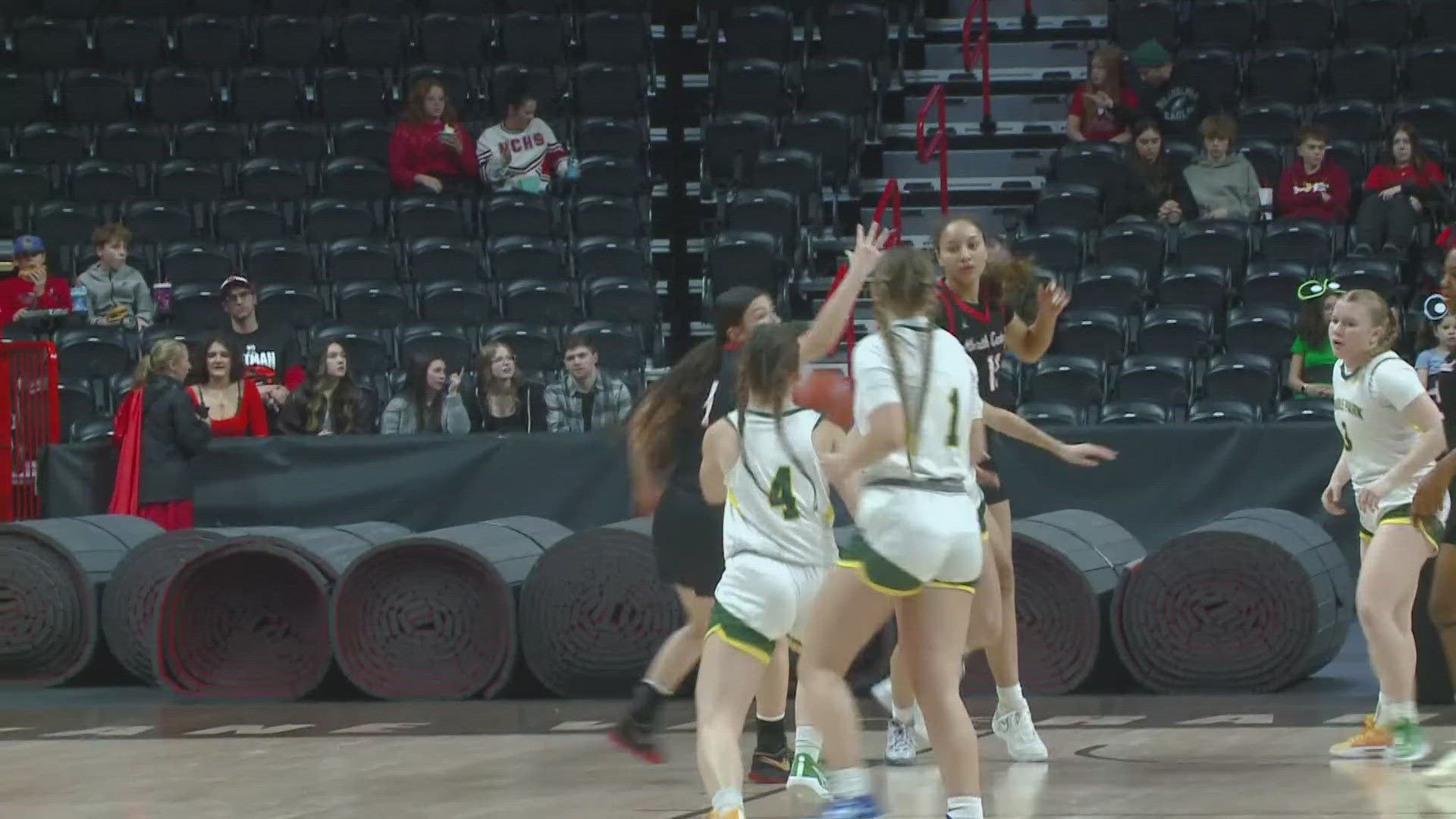COEUR D'ALENE, Idaho — North Idaho College Acting President Lita Burns warned the board of trustees Wednesday night that unless swift action is taken, NIC’s accreditation may be affected, as reported by KREM 2 news partner the Coeur d'Alene/Post Falls Press.
Burns said that while NIC’s accreditation is in good standing now, without a pattern of change in the board’s behavior, accreditation could be at risk
“You may think I am speaking as an alarmist,” Burns said. “Let me assure you I am not.”
With over 30 years of frontline experience in the accreditation process, Burns said she and others are willing to assist the board in any way to fulfill their commitment to the Northwest Commission on College and Universities.
NIC’s accreditation is under review by the NWCCU after a complaint filed by the Kootenai County Task Force on Human Relations and the human rights task forces for Bonner, Boundary and Spokane counties on March 12.
The complaint cites actions of Board Chair Todd Banducci, Vice Chair Greg McKenzie and Trustee Michael Barnes as “counter to the civil and human rights and civil liberties protected by the United States Constitution, Federal laws, Idaho laws and NIC policies for all NIC employees and students.”
The four human rights task forces sent two follow-up letters to the NWCCU, on Aug. 26 and Sept. 10.
Tony Stewart, representative for the task forces, said in an email to The Press on Thursday they have informed the NWCCU they will be filing a second detailed complaint regarding NIC next week.
The NWCCU has required the college to submit an ad-hoc report by next Aug. 1.
Burns said the report will focus on the college's governance and administrative leadership.
A May 28 statement to the NWCCU says the board is committed to addressing and resolving the concerns. It acknowledges that competing views on board authority, roles and responsibilities have resulted in board action and actions by individual board members perceived to be directing college operations. It further recognizes that its powers, duties and limitations are established by statute and policy.
In response to the NWCCU investigation, the board went through training in June from the Association of Community College Trustees, reinstated Policy 2.01.10 on Board Conduct with amendments, which was rescinded in November 2020, and said they will address the concerns of constituent groups. They restated that they value the advice of all interested individuals and groups in the solution of its educational and financial concerns.
The board statement also said trustees recognize the complaint references allegations of significant misconduct by Banducci and is committed to work through the issues to satisfactorily address the scope of the NWCCU investigation, along with readdressing board leadership roles.
In January, a Press public records request showed an email from former college President Rick MacLennan in which he said he was an eyewitness to Banducci’s physical assault of a female college employee at a college-sponsored event on Dec. 10, 2019. MacLennan said he did not initially recognize it as an assault.
After receiving the email from MacLennan, Trustee Christie Wood asked Banducci to resign as board chair immediately for what she described as “inappropriate, aggressive or threatening behavior.”
Wood said she also experienced physically threatening and verbally abusive behavior from Banducci, citing an incident in 2012 when she said Banducci pointed his finger at her and said, “I ought to take you outside right now and kick your ass.”
On Feb. 10, a motion by Wood for Banducci’s resignation failed by a 3-2 vote, with Trustee Ken Howard supporting Wood's motion.
MacLennan’s contract was terminated without cause in the Sept. 22 board meeting. The vote was 3-2, with Banducci, McKenzie and Barnes agreeing to fire the president.
Burns said Wednesday she's concerned about the lack of progress the board has made toward fulfilling their commitments to the NWCCU.
She presented the board with an accreditation response action plan prepared by the executive accreditation and planning committee, listing 10 action steps for the board.
Included are:
1: Ensure that the contracts or resolutions for the Interim and Permanent President retain the language outlined in the NIC Employment Agreement with the President, Section 2 - Responsibilities.
2: Reinstate Public Comment at all regularly scheduled meetings of the Board. The board has disallowed public comment in recent meetings.
3: Demonstrate respect and consideration of the recommendations of the college president.
4: Actively engage in and continue Board training.
5: Work in good faith with the Senate to complete the revision process and adoption of Policy 2.01.10., Board Conduct.
6: Demonstrate respect and consideration of the views of constituent groups.
7: Demonstrate collective adherence to the Standard of Good Practice.
8: Re-Address Board Leadership Roles.
9: Show understanding of duties of offices, particularly the Chair.
10: Address allegations of specific misconduct by the board chair.
Additional actions and suggestions include strict adherence to open meeting laws to remove any hint of impropriety or irregularity in any regular or special scheduled meeting, allowing for input from the constituency groups with the selection of a permanent president, and effort by the board to work collectively and as individual members to bolster a culture of “One NIC,” among other action items.
NIC’s page of FAQs on the investigation states that accreditation is important for the college to remain in operation as it enables NIC to offer federal financial aid to students, ensure credits earned at NIC transfer to other institutions, and allows the eligibility for NIC graduates to sit for licensure examinations.
It states, “The goal of institutional accreditation is to ensure that education provided by institutions of higher education meets acceptable levels of quality.”
After receiving the Ad-Hoc response, NIC states that should the NWCCU decide to impose a sanction on the college there are three options:
• Warning: When the commission finds that NIC has pursued a course that, if continued, could lead to more serious sanctions, it may issue to the institution a warning to correct its deficiencies, to refrain from certain activities, or to initiate certain activities within a stated period of time. A warning is a public sanction and does not affect the accredited status of NIC.
• Probation: A negative sanction indicating that NIC failed to respond to the concerns (including warning) communicated by the commission, or when the college deviates significantly from the commission’s standards, policies, or eligibility requirements, but not to such an extent as to warrant the issuing of a show-cause order or withdrawal of candidacy or accreditation, NIC may be placed on probation for a specified period of time.
• Show Cause: This is the last step prior to removing accreditation. A show cause order would be issued requesting that the institution respond to the stated concerns of the commission within a specified time. The burden of proof rests with NIC to demonstrate why its accreditation should be continued.
“There is a heavy dark cloud of uncertainty hanging over this beautiful campus of ours,” Burns said Wednesday. “Students and community members are calling with greater frequency about NIC's accreditation status. We respond by saying, 'Right now - heavy emphasis on right now - NIC is in good standing.' Unless action is taken by the board, our response will likely change in the near future.”
The Coeur d'Alene Press is a KREM 2 news partner. For more from our news partner, click here.



